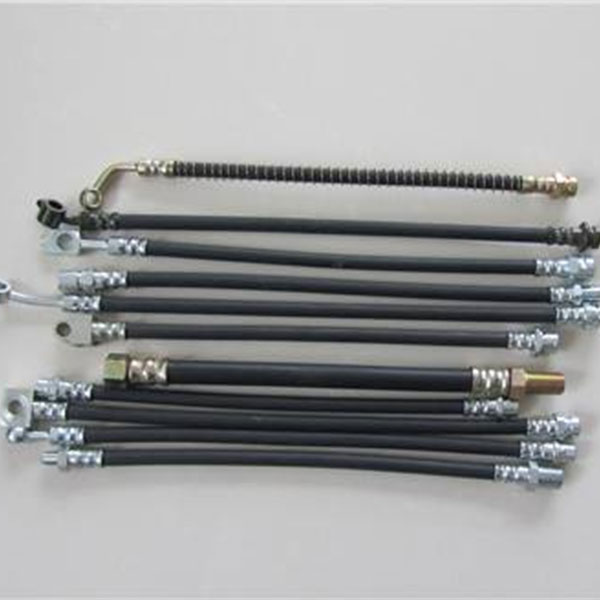Brake lines are one of the most important components of your vehicle’s safety operations. From saving you from collisions on the road to just being a fundamental component of all vehicles, brake lines should be taken care of on a regular basis to ensure that they are reliable and that you can depend on them when you need them the most.
Originally published in 2013 and updated in 2020 to reflect technical and industry changes, our auto experts at Christian Brothers Automotive explain what brake lines are, how they operate, when to service them, and so much more.
WHAT ARE BRAKE LINES?
Of course, we need to start with the basics: What are the brake lines?
Brakes are designed to keep you and your car safe on the road. In the case that your brakes fail, or are unreliable, you, your vehicle, and others on the road can be in serious trouble.
The brake lines play a key role in your vehicle’s overall brake performance and function, allowing your car to turn pedal pressure into stopping power. Most cars feature hydraulic brake systems, which use fluid to transfer the pressure applied by your foot to the brake. This is where your brake lines come into play.
The brake fluid is stored in the master cylinder and is transferred from the master cylinder to the brake calipers via the brake lines when the brake pedal is pushed. This pressure forces the calipers to clamp down on the brakes and, in turn, slow and stop the car.
HOW DO YOU KNOW IF YOUR BRAKE LINES ARE BAD?
If you notice any leaking fluid, it could be a sign of bad brake lines. Your brake lines should last the life of your car. However, debris or rough driving could cause cracks or holes in the lines.
Some common signs of brake line issues include:
Leaking Brake Fluid – Generally speaking, any leak from your vehicle should be a cause for concern. Since each liquid in your vehicle is a different color, it is best to examine the leak closely. Brake fluid is usually clear in color, although it may be brown if it is old and dirty. If you touch the fluid, it should have a dry oil feel to it. The other way to see if the leak is coming from your brake lines is by smelling the liquid. Brake fluid’s odor is usually compared to fish or castor oil. If you notice any of these signs, it’s most likely brake fluid.
Brake Light Comes On – If your brake line needs to be replaced, your car should let you know. In many cases, your brake light will appear on your dashboard if there is a problem. Whether your lines are going bad or you’re low on brake fluid, the light will give you a warning before serious damage occurs. If your brake light comes on, have it inspected by a professional.
You Can Push The Brake to the Ground – If you ever feel that you can push your brake pedal all the way down to the floorboard, with little to no resistance, your brake system is having issues. If this occurs, you should have your vehicle towed to a local shop and inspected.
Visible Distress – If you think you have an issue with your brake lines, and you know your way around a car, you can inspect it yourself. If you see any signs of moisture, corrosion, or damage you should have your vehicle’s brake lines replaced.
The easiest way to check for a brake line leak is by holding a flashlight under your car. If you notice drips on the inside of your wheels, rust spots along the lines, or any wet or dry fluid streaks, you could be dealing with a brake line leak.
Post time: May-25-2021

